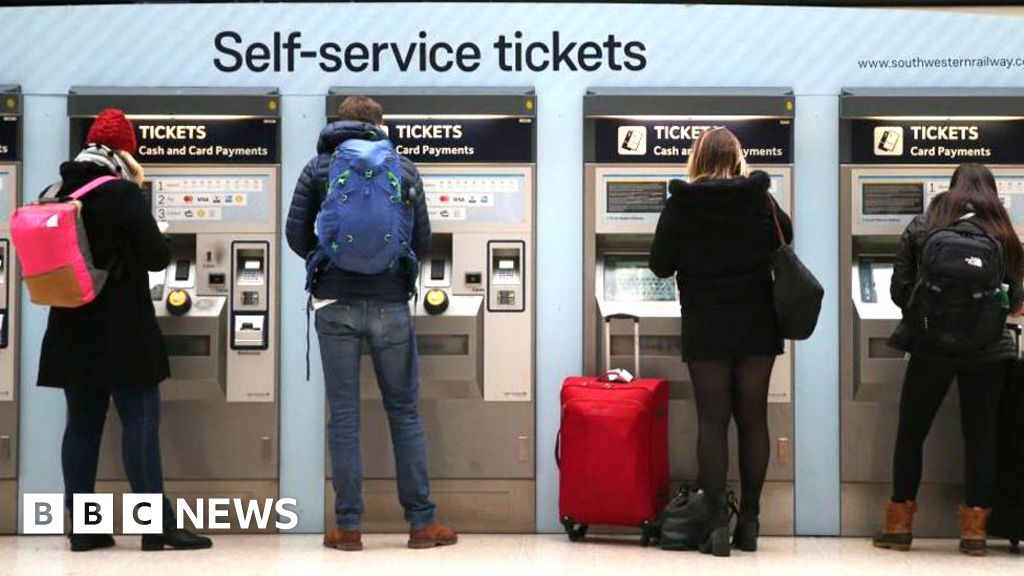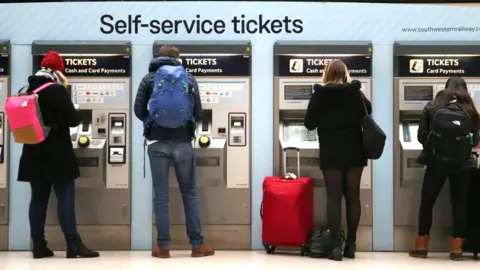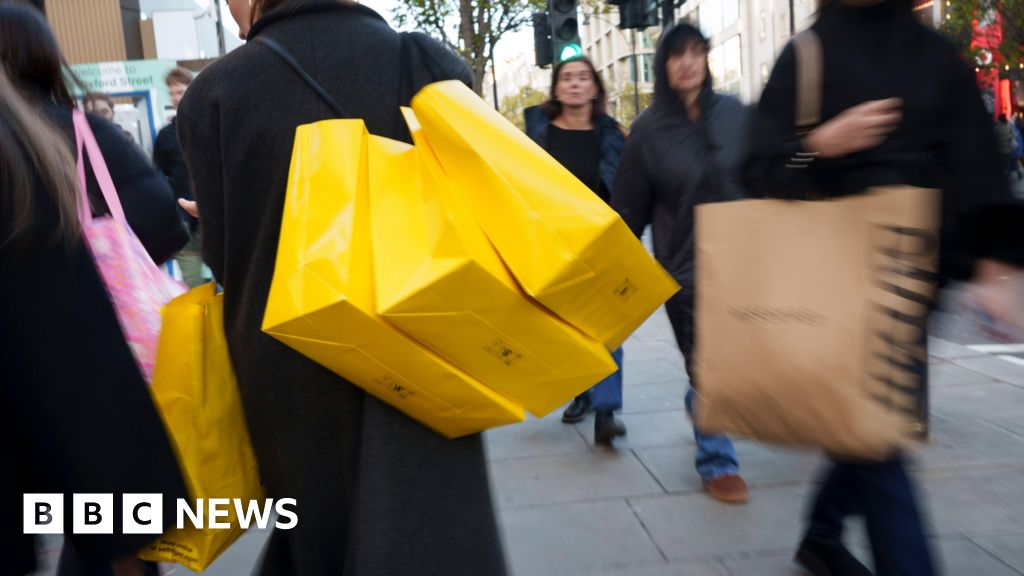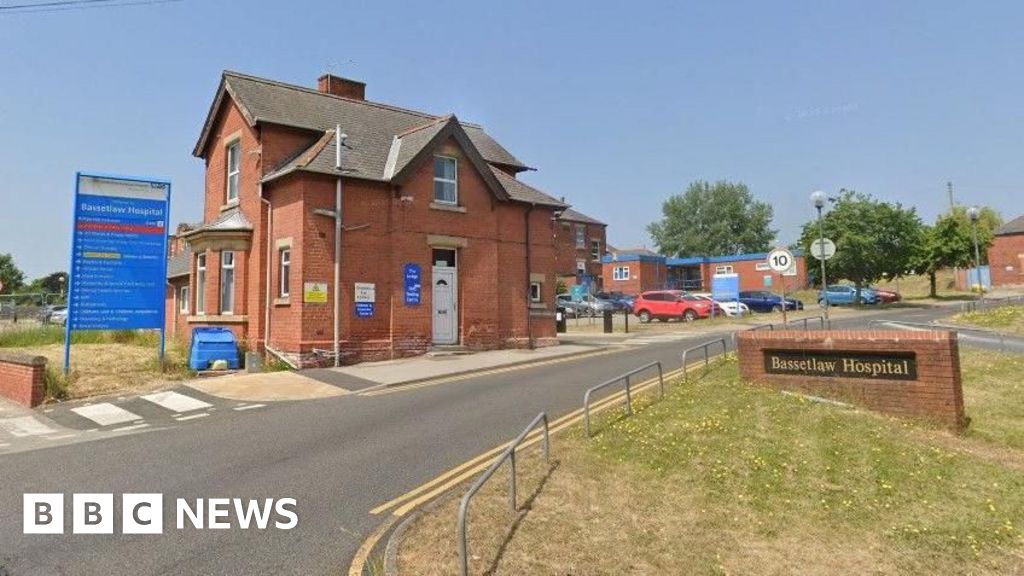
Ticket prices rise by 4.6% in England and Wales
- Business
- March 2, 2025
- No Comment
- 238
BBC business reporter
 Getty Images
Getty ImagesThe latest increase in rail fares in England and Wales is set to pile “further misery on hard-pressed households”, a campaign group has said.
From Sunday, regulated rail fares in England and Wales have risen by 4.6% and the price of most railcards has increased by £5.
The government says fares need to rise so it can invest in the rail system, but Transport Secretary Heidi Alexander acknowledged passengers were “frustrated” by delays and cancellations.
The Campaign for Better Transport said people were being “priced off the railways” by fare increases.
The rail fare rise for regulated tickets includes most season tickets covering commuter routes in England, which can cost thousands of pounds.
Some off-peak returns on long-distance journeys, and flexible tickets for travelling in and around cities will also rise.
Train operators set their own prices for unregulated fares, but these tend to increase by a similar amount to regulated fares, including on lines that have already been renationalised.
About 45% of train fares are regulated in England, Wales and Scotland, but the 4.6% rise relates to travel in England and Wales only.
In Scotland, rail fares are set to increase by 3.8% in April.
In Northern Ireland, the nationalised Translink service said no decision had yet been taken by the Department for Infrastructure on whether rail fares will go up in 2025.
The cost of most railcards has also gone up by about £5, from about £30, but disabled railcards remain the same price.
The Campaign for Better Transport said the fare increases would add to the pressure on households, coming on top of higher food and energy costs.
Michael Solomon Williams, head of campaigns at the group, said high ticket prices were the “number one barrier to getting more people travelling by rail”, and called on the government to bring down fares as part of rail reforms.
“People are being hit hard,” he told the BBC. “People want to take the train and they’re being priced off the railways.
“At the same time fuel duty’s being frozen. Government has the choice, it can choose to intervene.”
The campaign group said out of 40 commuter routes into London, annual season tickets for three will top £6,000 for the first time, with 10 others already there.
Annual season tickets from Canterbury and Southampton into London will go up by more than £300 to £7,100 and £7,477 respectively.
‘Crazily expensive’
 Adrian Rose
Adrian RoseAdrian Rose, 50, from Sittingbourne in Kent says hiking rail fares when they are already “crazily expensive” is not justifiable.
For him and his wife and two daughters to drive from Kent to see relatives in Newcastle is no more than £100 in fuel for the family, whereas to go by train can cost more than £400 if booking close to the departure date.
“The cost is prohibitive,” he says.
“I would happily take the train, but for over four times the cost? I could have a week’s holiday for that money.”
But Celia Downie, who uses the train regularly for work and leisure, says she will continue to do so “however much it costs”, because “I can work on the train and I believe it is environmentally proper to do so”.
But the 68-year-old from Bristol, who has a Senior Railcard, also believes prices are too high for families and says sometimes the experience of cramped carriages is “absolutely appalling”.
‘Not fit for purpose’
Heidi Alexander said she understood passenger frustration that fares keep rising “despite unacceptable levels of delays and cancellations”.
However, she said it was the lowest absolute increase in fares for three years.
“We inherited a railway that was not fit for purpose, and I know it will take time for trust to be restored, with trains turning up on time, when and where they’re needed.”
Alex Robertson, chief executive of watchdog Transport Focus, said its research had found a “a clear mismatch between ticket prices and the service people receive”.
“This needs to change,” he added, saying that passengers “rightly expect… to see improvements for the money they have paid”.
The government plans to renationalise rail firms as operators’ contracts either end or reach a break.
However, although three rail operators are set to be renationalised this year – South Western Railway, C2C and Greater Anglia – this is not expected to bring ticket prices down.
It is setting up a new arms-length body, Great British Railways (GBR), to take over service contracts currently held by private firms as they expire in the coming years.
Conservative shadow transport secretary Gareth Bacon said price increases showed that Labour’s pledges to make rail fares cheaper were “meaningless” and commuters were instead facing “chaos, confusion and cancellation” on the railways.
“Labour’s radical plans to hand control of the railways to the unions will only worsen services,” he said.
“Under new leadership, the Conservatives would put passengers first, ensuring that any fare increases are fair and proportionate.”
Additional reporting by James Kelly
#Ticket #prices #rise #England #Wales









